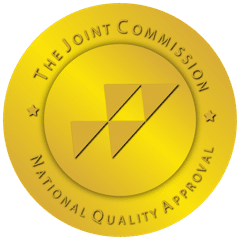Helping family members or friends through drug or substance abus recovery is an honorable undertaking. People often need a companion to assist on the path to recovery.
The path to recovery often comes with challenges. People with a history of substance abuse will have to take a deeper look at themselves. They can’t numb away the pain and will need your guidance.
Some people want to offer support, but they don’t know what to do. They don’t want to do or say the wrong things to someone who needs help with addiction.
We’ll cover some strategies to help you support loved ones as they recover from addiction.
Reduce Friction and Stress
Friction and stress fuel substance abuse. A rough day can send a recovering addict back to their substances.
Offer your loved one a safe space. Keep yourself in check to reduce friction and stress in both of your lives. No one is perfect, but monitoring ourselves lowers the risk.
Getting into fewer arguments reduces friction and stress, but certain activities also help. Exercising makes people feel happier and less stressed. An exercise routine can help with recovery by giving a former addict something to do.
Adding exercise as a habit makes it easier to incorporate other habits into your life. You can also reduce stress by meditating, sleeping earlier, and pursuing hobbies.
Recovery Requires an Understanding of the Root Cause
What causes someone to get addicted? Some people have toxic work environments and overbearing schedules. Other people who need help with addiction may have had a rough childhood or recently lost a loved one.
Work with your loved one to discover how and why they got addicted. Addressing the root cause and reinterpreting it can ward off future substance abuse.
Actively listen to your loved one when you explore this topic. A loved one may forget what led to their first drink or drug usage.
Some former addicts know their root cause. However, revisiting the root cause causes too many painful memories. It’s necessary to identify the root cause, but some addicts will need your help during those explorations.
Surround Yourself with the Right People
Some addicts abuse substances with others. They head to the local bar and meet up with a few friends. Spending time with these people can cause a former addict to succumb to their desires.
Not every addict is in the mental state to surround themselves with positive people. You can introduce them to new friends who take their health seriously.
You can join a gym and participate in some of the exercises together. People in the gym care about their fitness. They want to get better.

This influence can help a loved one stay away from substance abuse. We often become reflections of the people we associate with the most often.
You should also apply this on a personal level. Talk with people who are helping loved ones with recovery.
You can form a mastermind where you share ideas and small wins. This group can inspire you to stay faithful to your loved one.
Recovery Can Be a Lifelong Process
Recovery doesn’t happen immediately. It may require lifelong maintenance and monitoring to ensure your loved one doesn’t fall into old patterns.
You can reduce friction and stress for your loved one. You can surround them with caring people.
However, you can’t control everything. Your loved one’s boss may have strict deadlines and cause stress.
Staying present for your loved one will keep them on the right track. One slip-up can put them back to square one.
The lifelong process of recovery isn’t only about prevention. You should celebrate any milestones with your loved ones as if they’re birthdays.
Celebrate the first month of sobriety, the first year, and continue with each milestone. The recovery process can become enjoyable as you both marvel at how much your loved one has overcome.
Believed in Your Loved One
Some people write off addicts as lost causes. Others may never overlook a former addict’s bad behavior during their substance abuse.
A former addict can’t re-win everyone’s support. However, you can believe in your loved one and provide them with support.
Every addict is a person, an important truth some people unfortunately overlook. Some need proper support and guidance to recover fully. They’re looking for help but don’t know where to turn.
Believe in your loved one. Getting over substances is difficult. The fact your loved one wants help is commendable.
Believe in Yourself
Believing in your loved one helps you treat that person like a human. This mentality puts you in a great position to positively impact that person.
However, you must also believe in yourself. Believe that you can make a difference in this person’s life.
You won’t see a life-changing transformation overnight. Those take time to develop. As that transformation manifests itself, remind yourself that you can do this.
We have all overcome significant challenges and hardships in our lives. We don’t always give ourselves enough credit for what we’ve done. Remembering what you’ve accomplished in the past will set you and your loved one on the path to a bright future.
Help Your Loved One Recover
Helping a friend or family member recover from substance abuse is incredibly fulfilling. Watching their recovery in real-time allows you to celebrate any small wins and milestones.We would love to help on your journey and assist your loved one. Our admissions specialist can provide you and your loved one with the proper guidance. Contact us today to see how we can get started.










